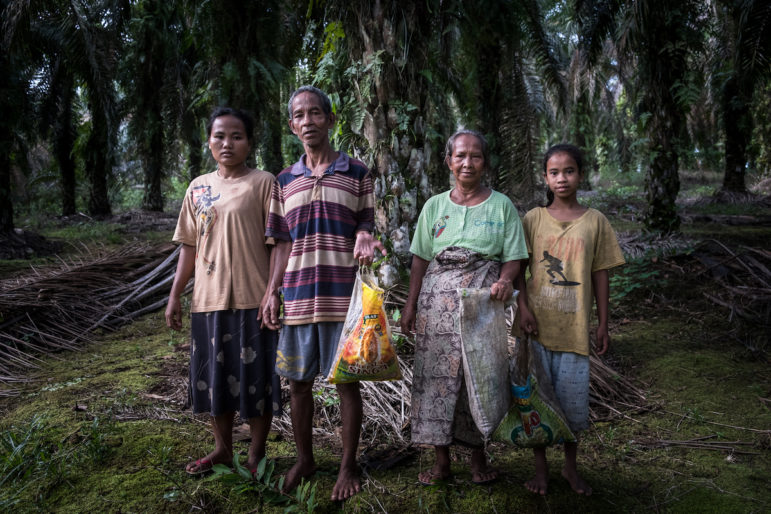Mongabay published a joint investigation with The Gecko Project and BBC News on May 23 that found Indonesian communities could be losing hundreds of millions of dollars each year. This is because palm oil producers are failing to comply with regulations requiring them to share their plantations with communities.

Ridah, Cilin, Siti Maninah and Yenita, members of the Suku Anak Dalam, in a plantation in South Sumatra. Image by Nopri Ismi.
The regulations are part of a scheme called “plasma” that was considered a means to reduce poverty across rural Indonesian communities. However, unfulfilled promises by the palm oil companies have resulted in monumental long-term profit losses for villagers and widespread unrest and protests across the country.
According to our research, it’s estimated that villagers in Central Kalimantan province alone could be losing more than $90 million each year. Many rural communities have marched in the streets, demonstrated outside government offices, blockaded roads, and occupied plantations in protest. These moments have culminated in villagers facing violence at the hands of the police and prison sentences.
Click here to read the full investigation.
Palm oil scheme revealed
If you would like to learn more about this investigation, check out the following videos and supporting stories::
- Key findings: A hidden crisis in Indonesia’s palm oil sector: 6 takeaways from our investigation
- Documentary: Indonesian villagers missing out on spoils from palm oil boom
- 90-second video summary: ‘The promise was a lie’: How Indonesian villagers lost their cut of the palm oil boom
- Read more of Mongabay’s coverage of Indonesia’s palm oil industry.
About Mongabay
Mongabay is a nonprofit environmental science and conservation news platform that provides cutting-edge, independent journalism from nature’s frontline. We pride ourselves in producing reporting that has substantial, tangible impacts worldwide.